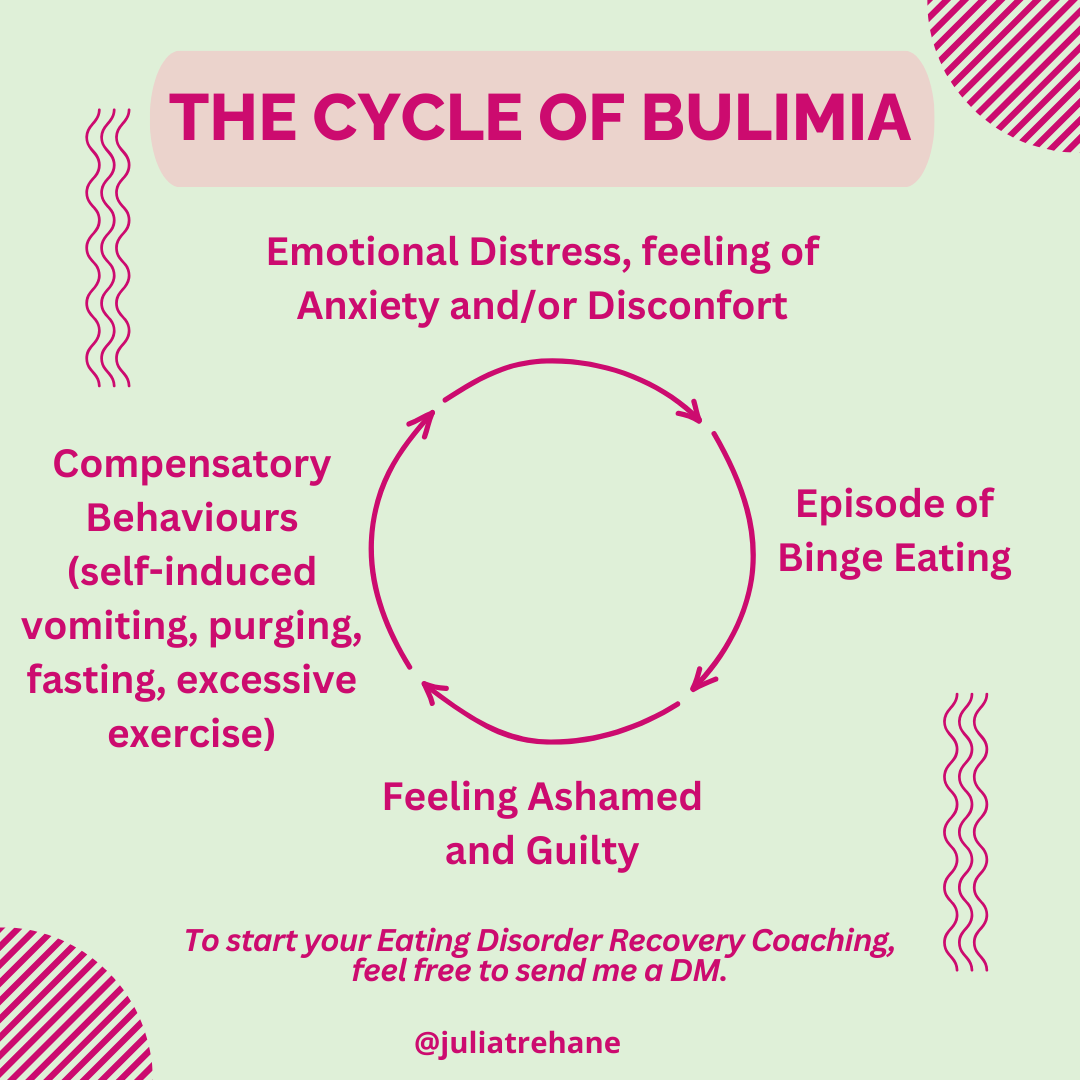

Welcome to this resource page dedicated to understanding and overcoming bulimia. As a recovery coach, I am here to provide you with valuable information, unwavering support, and gentle guidance on your path to healing.
Bulimia is a complex eating disorder that can have profound physical and emotional effects, but rest assured, recovery is possible. Let's embark on this journey together, exploring the nature of this disorder, its symptoms and some of the methods I use to help you recover.

Bulimia nervosa manifests in a cycle of binge eating followed by compensatory behaviors like purging, fasting, or excessive exercise. Here are some common symptoms that can help you identify if you may be experiencing bulimia:
Recovery from bulimia requires addressing the underlying emotional, psychological, and physical aspects of the disorder. Here are some of the tools that have proven effective for many individuals and which I use in my coaching on a daily basis:
Like all eating disorders, the journey to recovery from bulimia is unique to each individual, and the time it takes to recover is totally individual.
It is vital to remember that recovery is possible, but it requires patience, self-compassion, and professional guidance.
I find that recovery time is commonly influenced by these factors:
Recovery is a gradual process, and setbacks may occur. Remember to embrace self-compassion, be patient with yourself, and reach out for support when needed.
Bulimia is a complex eating disorder, but with a compassionate approach and unwavering support, you can overcome it.
By recognizing the symptoms, engaging with a recovery coach, and understanding that recovery takes time, you have taken a significant step toward healing.
Embrace the opportunity for growth, and know that a healthier, more loving relationship with food and yourself is within reach.
Disclaimer: This webpage is intended for informational purposes only and is not a substitute for professional medical advice. Always consult with a qualified healthcare provider for personalized diagnosis and treatment